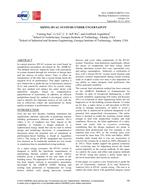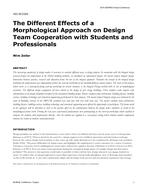Performance characteristics of a commercially available desiccant dehumidification system are experimentally determined. The system under consideration utilizes a rotary desiccant wheel that is regenerated by a gas-fired hot water heating system. The constituents of the study are (1) evaluation of the issues critical to accurate data acquisition and (2) examination of the sensitivities of system performance parameters to perturbations in certain design set points. The effectiveness of a mixing device in providing a uniform-property supply air is demonstrated, and its importance is discussed from the standpoint of the uncertainties in the experimental data. Sample data are presented to demonstrate the temporal variation of the supply air properties, temperature and humidity ratio, when the regeneration heating system is operated by an on-off control scheme. Two design variables, regeneration-to-process air ratio and regeneration temperature, are allowed to deviate from their respective set points, while the responses of the system performance parameters (an overall coefficient of performance [COP] for dehumdification, a local COP, the moisture removal capacity, and the effective equivalent cooling capacity) are observed. The local COP is a means for evaluating the efficiency of the dehumidification process based on the net heat output of the regeneration heating system. The distinction between these definitions for COP is useful in identifying the heating system or the dehumidification process as the sources of inefficiencies.
Units: Dual
Citation: ASHRAE Transactions, vol. 106, pt. 1
Product Details
- Published:
- 2000
- Number of Pages:
- 10
- File Size:
- 1 file , 160 KB
- Product Code(s):
- D-7302


